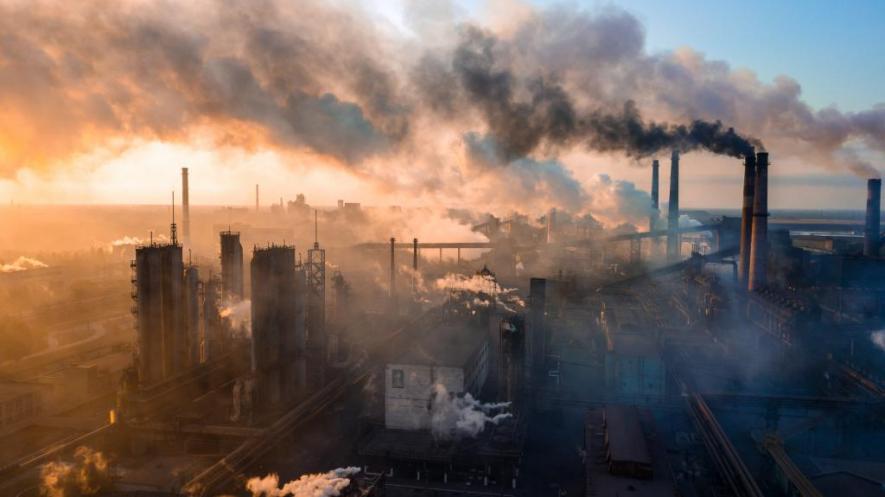Climate Change: Global Carbon Emissions Going to Rebound to Pre-Pandemic level

Image Courtesy: Down To Earth
While the crucial climate summit in the form of COP26 is underway and the world is concerned about reducing global emissions, a recent report suggests that the decreased levels of emissions during the pandemic would be soon reversed.
In 2020, the emissions of gases heating the planet fell by 5.4%. The period coincided with the phase when there were lockdowns and restrictions on movements across the world.
But, the recent report produced by the Global Carbon Project (GCP) has revealed an unwelcoming scenario. It says that the carbon dioxide emission this year is likely to rise by 4.9%, thus almost levelling what was achieved during the peak of the pandemic period.
The lead author of the study and a climate researcher of the University of Exeter, Pierre Friedlingstein, was quoted to have said on the report, "We were expecting to see some rebound. What surprised us was the intensity and rapidity of the rebound."
In 2020, carbon dioxide emissions fell drastically, by a record 1.9 billion tons, amounting to a decrease of about 5.4%. The report said that China and India would have higher emissions in 2021 than in 2019, while Europe and the United States are expected to have slightly lower emissions.
China was reported to have increased its coal usage, which is among the most dangerous contributors to global warming, while emissions in some other countries were found to be decreased.
The GCP report projected that global emissions would surpass 36.4 billion tons of carbon dioxide this year.
The projected emissions will be a rapid rebound and have shocked many scientists. Dr Glen Peters, Center for International Climate Research (Cicero), Norway, commented on the report saying, "What many of us were thinking in 2020 - including me - was more of a recovery spread out over a few years, as opposed to a big hitch in 2021. That's where the surprise comes for me - that it happened so quick, and also there's a concern that there's still some recovery to come."
The GCP report, which signifies the global carbon budget, was compiled by over 94 authors engaged in analysing economic data and gathering information about emissions from various sources, including land activities, like forestry.
According to many experts and scientists, this report can appear to be a misnomer to the global fight against emissions and climate change.
It is feared that if the world continues with the current trend, it is highly probable that the 1.5 degree Celsius of the warming threshold will be reached in just about 11 years. This is concurrent with the recent IPCC (Inter-Governmental Panel on Climate Change) report, which suggests that at the current rate, the threshold would be reached as early as 2030.
To limit climate change and maintain the threshold of 1.5 degree Celsius, carbon dioxide emissions must reach net-zero by 2050, which means curbing global emissions by 1.4 billion tonnes each year.
The report projected that China is expected to increase its emissions by 5.5% more in 2021 than in 2019 and India by 4.4% this year than in 2019.
Regarding this, Dr Peters commented—"Commentators should remember that, while China is responsible for nearly 30% of global carbon emissions, that left another 70% for the rest of the world to tackle."
"China is doing very well on many dimensions: it's deploying solar, it's deploying wind, electric buses, electric vehicles, and so there are lots of positive things going on in China," Dr Peters explained.
"But unfortunately, the stimulus packages often tend to focus on industrial sectors - construction, steel, cement. This requires coal. If China can turn that around, it has plenty of potential to reduce emissions because it has so much potential for large-scale deployment of solar and wind [power] that other countries don't have."
Get the latest reports & analysis with people's perspective on Protests, movements & deep analytical videos, discussions of the current affairs in your Telegram app. Subscribe to NewsClick's Telegram channel & get Real-Time updates on stories, as they get published on our website.
























